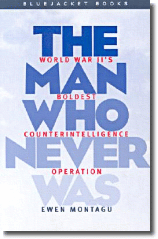
The entry begins:
I love this site's concept and I'm happy to be a part of the fun.Read sample chapters from The Dark-Eyes' War (and Coe's other books), and learn more about the books and author, at David B. Coe's website and blog.
My newest novel, The Dark-Eyes' War, is the third and final volume in my Blood of the Southlands trilogy (the other two volumes were The Sorcerers' Plague and The Horsemen's Gambit). Blood of the Southlands is an epic fantasy about prejudice and revenge and the unintended consequences of both. The population of the Southlands is divided between two races: the Qirsi, white-haired, pale-complexioned sorcerers who are physically frail, but wield powerful magic, and the Eandi, who are more like the people of our own world.
There are five characters in The Dark-Eyes' War who I'd like to cast, but finding the right actors exclusively from today's crop of Hollywood talent strikes me as too difficult. So, I'm going to take the liberty of traveling back and forth between Hollywood generations.
Grinsa ja Arriet -- Grinsa is a Qirsi Weaver, the most powerful kind of sorcerer. Weavers can bind together the magics of many Qirsi and wield them as a single weapon. They also tend to be more hale and physically powerful than other Qirsi. I think I'd like to see him played by Sean Bean (Boromir, from LOTR). Bean would have to grow his hair out and dye it white/blond, but he'd be terrific in the role.
Cresenne ja Terba -- Grinsa's love. She began (in an earlier book in my previous series, Winds of the Forelands) by seducing him on behalf of a renegade Qirsi Weaver, and then trying to have him killed. But she became pregnant with his child and eventually they fell in love. Long story; much drama. But back to the point: I'd like to go back in time for this one and cast...[read on]
My Book, The Movie: The Dark-Eyes' War.
--Marshal Zeringue















































